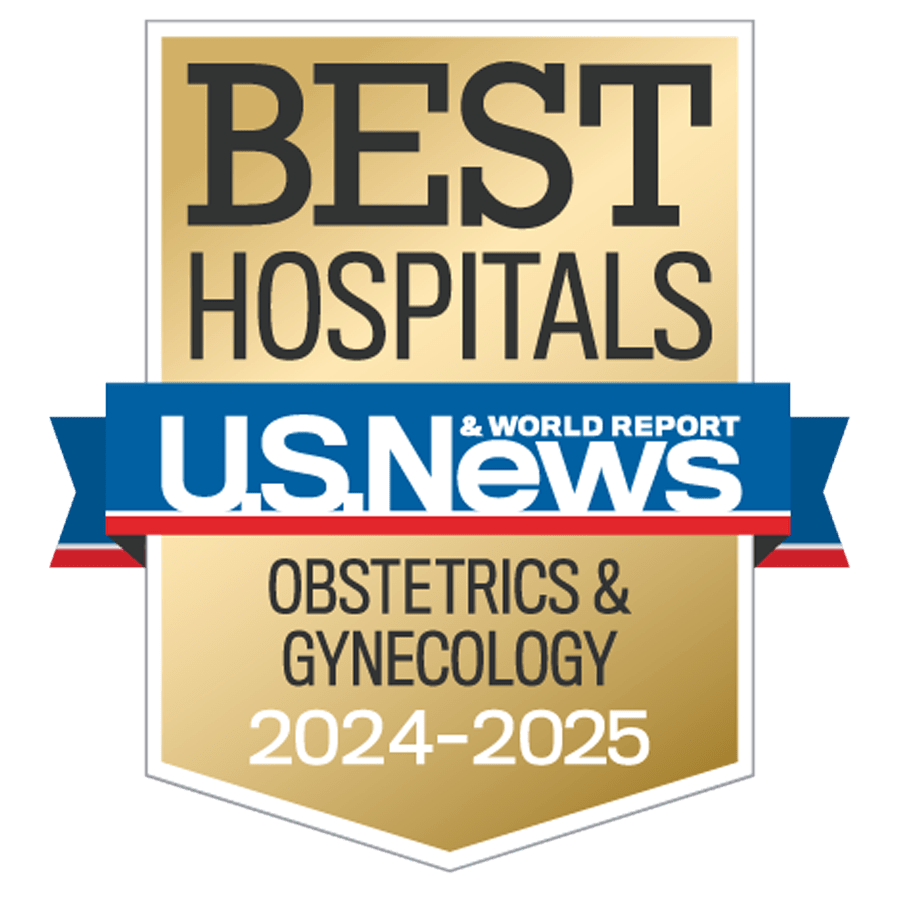If you want to breastfeed, we want you to succeed, so The Ohio State University Wexner Medical Center offers breastfeeding education and support that can start before you meet your baby and continue in the hospital and in the weeks after you return home.
Learn about breastfeeding before your baby is born
- Nipple and breast care education
- Support for parents who have had previous breastfeeding challenges
- Support for parents with medical history that may affect milk production or breastfeeding plans
- Special education for those expecting multiples
- Exclusive pumping education
Breastfeeding support after your baby arrives
Every new mom will be visited by a lactation consultant within 24 hours of delivery to talk about the benefits, challenges and support available for breastfeeding.
Your bedside nurses and our board-certified lactation consultants have advanced training in breastfeeding, so they can give you the coaching and education you need to feel more confident and relaxed. This partnership can continue after you return home, too. During your hospital stay onward, we can help with:
- Attachment and positioning assessment
- Nipple soreness assessment
- Milk supply assessment
- Infant weight gain assessment
- Weighted feed with breastfeeding observation
- Tongue function assessments
- Suck support for infants
- Transition from bottle to breast for premature infants
- Breastfeeding aids
- Selection of pumps and other products
- Transitioning back to work
- Postpartum depression screening
Benefits of breastfeeding
Evidence confirms benefits of breastfeeding for you and your baby:
- Breast milk is easier for your baby to digest than formula.
- Breastfed babies have less gas and less spitting up.
- Breast milk helps prevent illness and lowers the risk of asthma, type 2 diabetes, obesity, and childhood cancers for your baby. It also reduces the risk of sudden infant death syndrome (SIDS) and
- helps develop your baby's brain and nervous system.
- Breastfeeding helps your uterus return to its normal size faster and may help you return to your pre-pregnancy weight sooner. It also reduces your risk of breast and ovarian cancers and type 2 diabetes.
- Breastfeeding is also good for the environment, with no waste or energy used to make the milk.
Breastfeeding problems: When to call our lactation consultants
If you have any of the issues listed below, please call our lactation consultants or contact your doctor:
- Your breasts become painful or swollen, even with baby nursing or pumping.
- Any part of your breast or chest becomes red, feels hot or is sore when touched.
- Your nipples crack, bleed or become painfully sore.
- You have a fever over 101.4° F.
Can I still breastfeed if my baby is premature or needs to be hospitalized?
There will be some extra challenges, but you can still breastfeed a premature or hospitalized baby.
Your baby may not be physically ready to latch to the breast right after birth, may have weak suckling reflexes and tire easily. Some babies will have to go to the neonatal intensive care unit, or NICU, immediately after being born — either at the Ohio State Wexner Medical Center or at nearby Nationwide Children’s Hospital.
To help you establish a regular milk supply, you’ll most likely need to start pumping your breast milk right after delivery. This milk will then be given to your baby via bottle or feeding tube.
Our lactation team will also teach you how to express your milk and make arrangements for a breast pump that you can use at home.
If you deliver your baby early, you’re at higher risk for not making enough milk. That’s because hormones needed for milk production increase when you’re near your baby. To help with this, new moms are encouraged to visit their baby in the NICU as soon as they are able. We also encourage skin-to-skin contact with your baby for both parents. This is called kangaroo care, and the extra touch helps you bond with your baby and encourages milk production. It’s normal for many moms to produce only a small amount of breast milk in the first three to five days after delivery, but every drop counts, and we’ll be there to support and encourage you until your milk supply is well established.
Frequently asked questions or concerns about breastfeeding
Why choose Ohio State for lactation services?
Both baby and mom benefit from breastfeeding, which is why The Ohio State University Wexner Medical Center offers lactation education and support services to encourage exclusive breastfeeding for a baby’s first six months and continued breastfeeding through the first year.
Our efforts to promote, protect and encourage breastfeeding have been recognized by the Ohio Hospital Association and the Ohio Department of Health’s First Steps for Healthy Babies program. Our commitment to lactation best practices has helped us earn two stars from their First Steps and Baby-Friendly Hospitals program.
In addition, we’ve earned Maternity Care Best Practice Bag Free Recognition, which is presented by First Steps for Healthy Babies in partnership with the Ohio Breastfeeding Alliance and the Ohio Lactation Consultant Association. This designation recognizes our maternity center’s decision to not distribute infant formula or sample packs to parents — an important stance when reinforcing the benefits of breast milk.
How to get additional help with breastfeeding
Call the Ohio State Breastfeeding Help line.
- Talk with one of our lactation consultants at 614-293-8910.
Attend in-person lactation classes.
- Breastfeeding Basics – a 2.5-hour class for expectant parents on the what, where, when, why and how of breastfeeding.
- Pumping Essentials – a free one-hour class for expectant or new parents with hands-on learning in a group setting.
Other breastfeeding resources
- Office on Women’s Health: womenshealth.gov or 800-994-9662 (English/Spanish)
- La Leche League: llli.org or 877-4-LALECHE (English/Spanish)
- Firstdroplets.com: Learn about attachment, boosting breastmilk supply, hand expression and pumping

